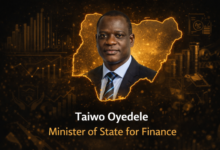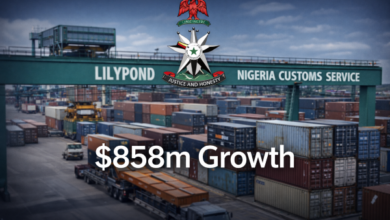NESI: TCN Flags N457bn Debt Overhang in Power Sector, Warns of Fragile Value Chain
The Transmission Company of Nigeria (TCN) has raised an alarm over a ballooning debt burden of ₦457 billion owed by players within the Nigerian Electricity Supply Industry (NESI), a liability it warns is undermining the integrity and sustainability of power transmission services across the country.
Speaking at a strategic media capacity-building workshop held in Keffi, Nasarawa State, TCN’s Managing Director, Mr. Sule Abdulaziz—represented by the Executive Director, Transmission Service Provider, Mr. Oluwagbenga Ajiboye—disclosed that the debt includes ₦217 billion in legacy arrears and ₦240 billion in unpaid charges for recent services rendered.
Despite these financial constraints, TCN says it has made substantial progress, ramping up its wheeling capacity to 8,701 megawatts. However, this milestone may amount to little if liquidity shortfalls, infrastructural disconnects, and policy bottlenecks continue to throttle the sector’s weakest links.
Debt Without Discharge: A Fragile Power Grid at Risk
The ₦457 billion owed to TCN highlights a deeper systemic flaw in Nigeria’s power value chain—a recurring mismatch between service delivery and payment fidelity, particularly in a market where cost-reflective tariffs remain elusive.
This mounting debt also threatens the financial viability of transmission operations, despite billions of naira in donor-backed investments. Sector analysts say that without enforceable market discipline, the transmission backbone risks becoming a high-capacity but underutilised corridor.
“The electricity value chain must not be broken. Its strength must be uniform to successfully deliver electricity to consumers,” Abdulaziz warned.
Indeed, the fragility of the NESI ecosystem—from generation to distribution—is not merely technical but deeply financial and institutional. TCN’s predicament is the latest manifestation of a sector where power is produced but not paid for, transmitted but not monetised, and where infrastructure is built but left idle.
Idle Substations, Active Sabotage: A Tale of Misaligned Investments
In a striking revelation, Mr. Aminu Tahir, TCN’s General Manager, Project Coordination, cited that numerous newly completed substations remain unutilised due to inability to link them to transmission lines—a delay primarily driven by right-of-way (RoW) disputes.
This misalignment not only represents capital trapped in concrete, but also exposes Nigeria’s infrastructure execution gaps, where multibillion-naira projects stall over access permissions and bureaucratic inertia.
Additionally, persistent vandalism of key transmission assets continues to sap the sector of resilience, causing avoidable downtimes and service disruptions—often with national grid-level implications.
International Capital, Local Constraints
Despite its woes, TCN has managed to secure significant funding support from global development financiers including the World Bank, AFD (French Development Agency), AfDB, and JICA (Japan International Cooperation Agency)—a clear indication of sustained investor confidence in Nigeria’s long-term energy reform agenda.
But financial inflows alone cannot offset governance shortfalls. Sector observers argue that greater synergy between policy, regulation, and market behavior is required to unlock the full potential of TCN’s transmission expansion drive.
The Communication Gap: Media as Stakeholders in Power Reform
Addressing journalists at the workshop, Mrs. Ndidi Mbah, TCN’s General Manager, Public Affairs, emphasised the importance of informed reporting, noting that public perception of TCN’s role in the electricity value chain remains limited.
“It is very important to us at TCN for you to understand us well and report us better,” she said, urging the media to engage with the company’s technical and project teams to better communicate its challenges and contributions.
BRANDECONOMY Bottom Line: Market Reform Must Match Infrastructure Ambition
The latest revelations from TCN reinforce a familiar refrain in Nigeria’s power narrative: infrastructure investment without operational discipline breeds systemic inefficiency.
Until NESI players adhere to payment obligations, and regulatory enforcements become the norm rather than the exception, the billions poured into transmission upgrades will remain vulnerable to gridlock—both literal and financial.
To truly electrify the economy, Nigeria must not only wire the grid—it must fix the economics behind it.










